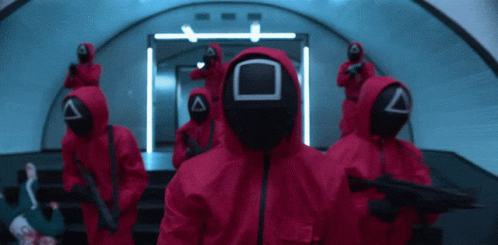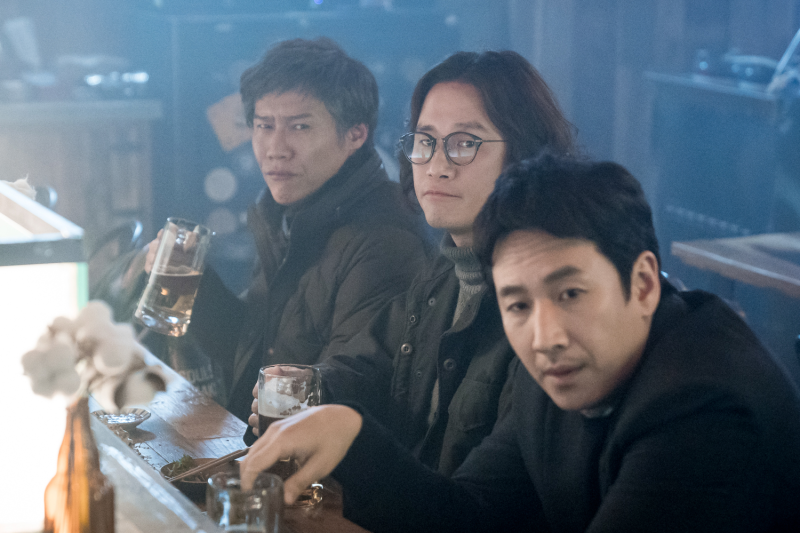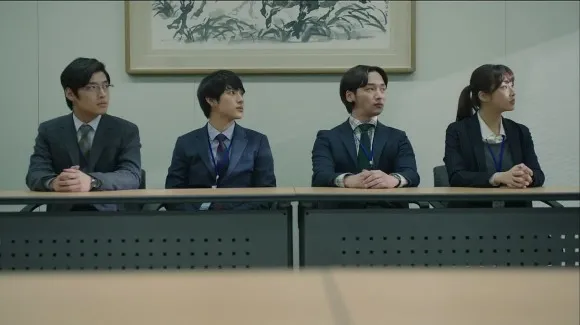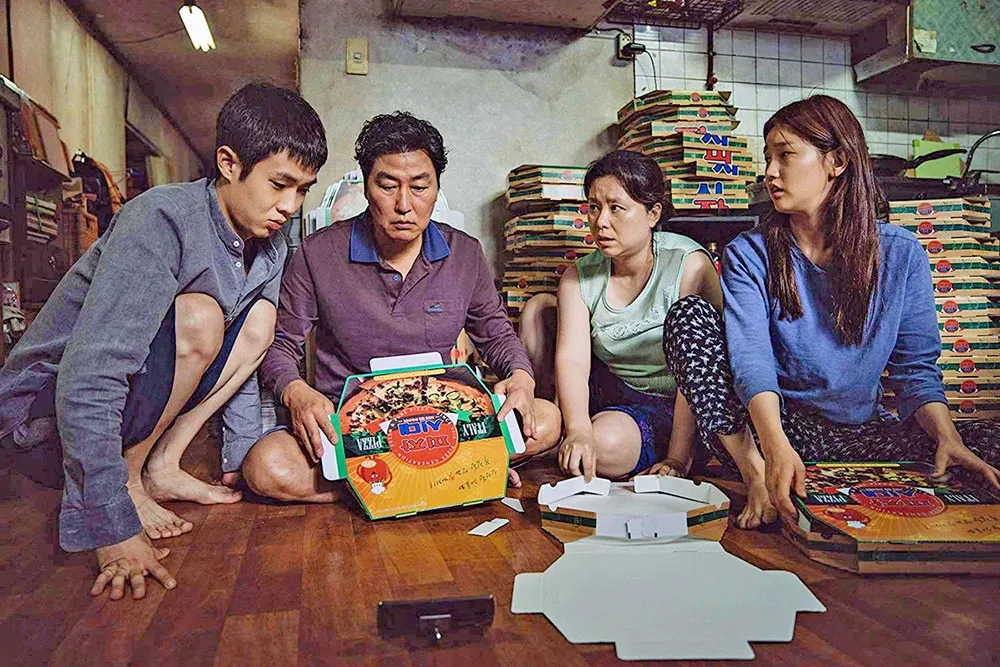Even viewers without dozens—or hundreds— of Korean dramas lined up in their Netflix accounts will be aware of Bong Joon-ho’s Oscar-winning black comedy Parasite (2019) and Hwang Dong-hyuk’s mega-hit survival drama Squid Game (2021). Both are excellent entry points to the strong stories, political subtexts and rich characterisations of contemporary Korean drama.

A number of movies and TV series explore South Korea as a place of increasing societal extremes post the financial crisis—and IMF bailout—of 1997, which created seismic waves in the lives of Koreans. Unemployment soared, personal debt increased, and the job market became even more insecure and competitive. (This six-minute report from Arirang Issue in 2017 explores the ongoing impact of the crisis.) The economy recovered—and began to soar— but for many Koreans life was harder and less stable, and structural inequality intensified.
In Parasite the Kim family are sinking after a succession of failed small businesses, making a living through piece work, like the fatherless Go family in the 2007 TV series Coffee Prince (which also stars the Squid Game actor Gong Yoo). The middle-aged former office workers of My Mister (2018) have fallen in status as well as income, without the connections needed to replace the corporate jobs they’ve lost; the protagonist’s brothers both live at home with their mother, and work as cleaners. The main character in My Mister is played by Lee Sun-kyun, the wealthy Mr Park of Parasite.
The boarding-house crew of Reply 1994 graduate from university in Seoul just as the IMF crisis hits, and protagonist Sung Na-jung struggles to find work. In Misaeng (2014) and Romance is a Bonus Book (2021), university graduates compete for internships—and then permanent jobs—at companies large and small, with attendant anxiety, deceit, animosity and rivalry.



The in-debt professional Cho Sang-woo of Squid Game is a next-generation version of Kim Yong-ho in Lee Chang-dong’s Peppermint Candy (1999): desperate to rise from a poor background into a financial elite. In Peppermint Candy, told in reverse chronological order, Kim Yong-ho loses his business in the financial crisis, its trauma still palpable when the film was made.
The Raincoat Killer: Chasing a Predator in Korea is a 2021 “docu-series” in three episodes, directed by John Choi and Rob Sixsmith. It’s the story of a serial killer who terrorised Seoul in 2003 and 2004, built from interviews, archival footage and re-enactments. The victims included people murdered during home invasions and sex workers killed at his apartment, who were dismembered and buried in woods near a Buddhist temple.
The testimony of people involved in or observing the case—detectives, forensic expert, profiler, journalist, prosecutor, relatives of victims—reveal the chaos behind the scenes, with little evidence at a time when CCTV footage was scant. The investigation was also plagued by lack of communication between precincts, false leads around other murders, bribery of police in red-light districts, lack of concern about disappearing sex workers, and the killer escaping custody during questioning—the latter so ludicrous it felt like a scene from the hit comedy film Extreme Job. If a particular pimp (a former police officer) had not acted on his suspicions, the killer may have eluded authorities for even longer.
Forensic expert Kim Hee Sook talking about her dogged attempts to retrieve fingerprints from the unearthed victims—so they could be identified and returned to families—is moving, as is the quiet desperation of Ahn Jae-sam, brother of the first victim. Kang Dae-won, the now-retired chief of the Mobile Investigation Unit, is the most eccentric of all the interviews, looking more gangster than cop in his purple sunglasses.
There are multiple other strands to follow from both Squid Game and Parasite. Their male leads are two of the most familiar faces in Korean movies. Lee Jung-jae (who plays the hangdog Seong Gi-hun in Squid Game) also stars as the villain of Deliver Us From Evil (2020), in Svaha: The Sixth Finger (2019) and in the 2010 remake of The Housemaid, along with the slick 2019 TV series Chief of Staff. Song Kang-ho (Kim Ki-taek in Parasite) stars in two of Bong Joon-ho’s other films—Memory of Murder (2003) and Snowpiercer (2013)—as well as acclaimed movies The Throne (2015) and A Taxi Driver (2017).
Creator of Squid Game Hwang Dong-hyuk wrote and directed the film Silenced (2011) based on the novel The Crucible by Gong Ji-young and starring Gong Yoo (the salesman in Squid Game). The film was a sensation, not only a box-office hit but the catalyst for legislative reform around sex crimes against minors.
Hwang Dong-hyuk adapted another novel (Namhansanseong by Kim Hoon) for the stylish historical drama The Fortress (2017), starring Lee Byung-hun of Squid Game and Mr Sunshine as well as numerous films (Inside Men, The Man Standing Next).
If Squid Game wasn’t violent enough for your tastes, and you prefer explosions over back story, then the film Deliver Us from Evil may appeal. Lee Jung-jae as the villain, Ray the Butcher, is almost unrecognisable.